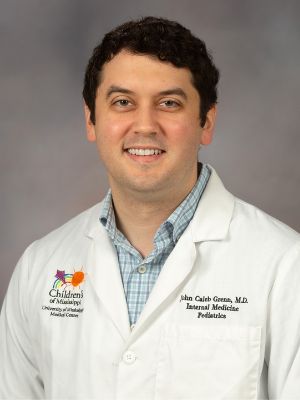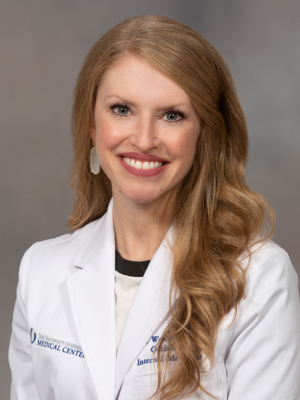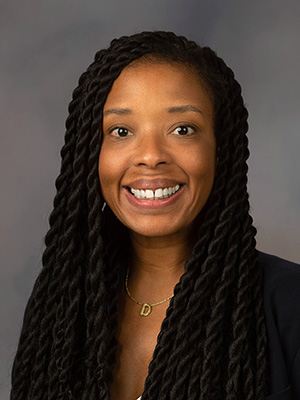- SOM
- Departments and Offices
- SOM Departments
- Medicine
- Education Programs
- Student Programs
- M2 Year
M2 Year
- Department of Medicine
- About Department of Medicine
-
Specialties
- Cardiology
- Clinical Immunology
- Digestive Diseases
- Endocrinology
- General Internal Medicine
- Geriatrics
- Hematology and Oncology
- Hospital Medicine
- Infectious Diseases
- Nephrology
- Palliative and Supportive Care
- Pulmonary, Critical Care and Sleep Medicine
- Genetics and Genomics
-
Education Programs
- Student Programs
-
Internal Medicine Residency Program
- Internal Medicine Residency Program Home
- About the Program
- Residents
- Applicants
- Social Media
- Medicine/Pediatrics Residency Program
- Fellowship Programs
- Board Review Course
- Research
Introduction to the Medical Profession II
Introduction to the Medical Profession II has been thoughtfully designed to build upon the knowledge and skills gained in IMP1 and to provide students the skills necessary to integrate the subject knowledge they have acquired into a focused and comprehensive method of interacting with patients. As a continuing “introduction course," IMP2 in no way makes the claim that students will acquire mastery in any of the techniques or methods taught here. It is up to students to take what they will learn and to apply it to every patient they will see for the rest of their professional lives, while continuously honing the skills based on individual needs.
Physicians in the 21st century must constantly seek, evaluate, analyze, and assimilate new knowledge and utilize that knowledge in clinical reasoning, diagnosis and treatment plans. They also must be able to communicate effectively with patients and other members of the health care team; collect and document historical and physical exam information; work in collaborative teams with members of other healthcare disciplines; strive to improve the health and well-being of their communities; display continual quality improvement in their practice; and meet the societal expectations for behavior of medical professionals. This second year course is designed to build upon the concepts learned in Introduction to the Medical Profession I (IMP1) by further developing many of these skills. This course aims to continue developing skills necessary to fulfill all the physician roles. The skills emphasized in IMP2 are the fundamentals of patient care – history, physical examination, and clinical decision-making. However, additional attention is also given to physical diagnosis, clinical reasoning, professionalism, and communication. IMP2 also continues the students’ study of medical ethics, population health, and health systems science.
To be successful in this course requires that students take each activity seriously. Self-directed study and wise time management will be key aspects of doing well in this course. As adult learners, it is the student responsibility to attend all required meetings and participate fully in each activity.
Teaching methods
Didactic teaching sessions (DTS)
Didactics are traditional, lecture style sessions through which much of the fundamental course content will be taught. Each presenter is an expert in his or her field, who has taken time from practice to share knowledge with students. Didactic teaching sessions have been arranged by content to parallel as nearly as possible those topics covered in other courses during the M2 year. Each DTS is being provided either through traditional lecture format or podcast. Several system-specific didactic sessions are mandatory and will be marked as such on Canvas.
The content has been selected based on two factors: prerequisite clinical information to performing a history, physical, and decision-making for entry into the M3 clerkship year; and content pertinent to that covered by the NBME Customized Board Exam and USMLE Step 1. The content includes physical diagnosis, clinical reasoning, ethics, healthcare policy and population health. Each speaker will be submitting objectives as well as three to five test questions per 50-minute session. Evaluation of the students’ knowledge of the content covered in didactic teaching sessions will primarily be assessed through five block tests and the NBME exam.
Examination small group demos
The mastery of physical exam skills takes proper instruction and lots of practice. Introduction of these skills will be primarily through videos and small group demonstrations. A small group of physicians who have proven themselves in demonstrating and teaching physical exam skills in their respective disciplines have been selected to lead these sessions. The physical exam skills will be introduced by faculty in DTS and then demonstrated and practiced in subsequent small groups. Each student will be taught these skills in groups of about 10-12 students, where the system-specific exam will be demonstrated, followed by an opportunity for students to practice the skill under observation of the demo leader. Online videos will also be provided for some content areas to reinforce these techniques.
In three specific areas - lung exam, musculoskeletal exam, and abdominal exam - the practice of physical examination skills will be augmented by ultrasound training. The content will be provided through the SonoSim Modules introduced in IMP1.
Preceptor
Students will be grouped together with a preceptor from September to March. Preceptors have been selected for their motivation and dedication to teaching students. Students will be required to meet with their preceptor a minimum of two hours approximately twice a month for a total of 18 hours, although students and preceptors may choose to meet more frequently. Meeting times are to be decided between students and preceptor. Time in the schedule has been reserved, but students may choose to utilize other times as they are permitted to meet. Students will be assessed by preceptors throughout the experience and by a final witnessed H&P. Students will need to have a great deal of initiative to have the best learning experience.
Observed structured clinical encounters
In addition to the preceptor experience with patients, students will attend the clinical skills assessment center for two observed structured clinical encounters (OSCEs). This experience will provide a standardized assessment of the history taking skills and examination skills learned in the demos and preceptor experience, as well as continue to provide practice for students. Evaluation of these skills will be done by trained standardized patients and via self-reflection by the student.
Case-based learning sessions
To learn clinical decision-making skills, students will be divided into groups that will meet throughout the year to discuss and work through several clinical scenarios that reiterate material introduced in DTS. Faculty members will be present to facilitate each group in working through the cases. Pertinent journal articles will be discussed at the some of these sessions to review important biostatistics and epidemiology introduced in IMP1.
Interprofessional communication simulation
The ability to communicate effectively is one of the most important qualities of a good physician. Breakdowns in communication are a common cause of errors in patient care and litigations against physicians. The UMMC School of Medicine has partnered with the School of Nursing and School of Pharmacy to create an interprofessional simulation with nursing and pharmacy students.
Mercy Delta
Health disparities continue to be an issue across the nation, but particularly in Mississippi. They require both creative thinking and collaborations with other members of the health care team, social constructs, and communities. The School of Nursing has been providing health care to the Mississippi Delta for some time now and offers an opportunity for medical students to put to use their medical knowledge this year. This course requires that students take at least one trip during the year.
Course sessions
| Session/Topic | Hours | Format |
| Ethics | 9 | DTS/PBL |
| Population Health/Health Care Policy | 16 | DTS/Flipped Classroom |
| History and Physical Diagnosis Didactics | 48 | DTS/Self-Study |
| Physical Diagnosis Demos/Simulations | 16 | Small Group Demonstrations/Simulations |
| Communication Simulations | 4 | Small Group Simulations |
| Case-Based Learning | 18 | Small Group Collaboration |
| Preceptor | 18 | Apprenticeship Learning |
| Delta Mercy Experience | 8 | Clinical Interaction |
| OSCE (x2) | 3 | Standardized Patient |
Physical diagnosis didactics
| System | Hours |
| History | 2 |
| Cardiology | 7 |
| Pulmonology | 3 |
| Ophthalmology | 2 |
| Hematology | 2 |
| Oncology | 2 |
| Head and Neck | 2 |
| GI/General Surgery | 3 |
| Pediatrics/Development | 3 |
| Gynecology/Reproductive Health | 5 |
| GU/Nephrology | 3 |
| Neurology/Psychiatry | 4 |
| Endocrinology | 2 |
| Rheumatology/MSK | 3 |
| Dermatology | 2 |
| HIV/Infectious Disease | 1 |
| Review | 2 |
For more information
| Course Directors | |
 | John Caleb Grenn, MD |
 | Lyssa Weatherly, MD |
| Course Staff | |
 | Destini Dill |


